- Suite 17 / 79 Manningham Road, Bulleen VIC 3105
- 0406 197 099
- hello@pmafinance.com.au
Cafes, restaurants, hair and beauty salons on the ATO’s radar as it steps up cash economy fight

CBA: Victoria’s tax on vacant homes may be a blueprint for other cities in Australia
07/03/2017
Why the RBA cares about house prices and how it affects interest rates
08/03/2017Cafes, restaurants, hair and beauty salons on the ATO’s radar as it steps up cash economy fight
An estimated 400 restaurants, cafes and hair and beauty salons will get a visit from the Tax Office this month, as part of the agency’s continued focus on the illegal cash economy.
The ATO has in recent years stepped up audits of small businesses in high-risk industries, which it suspects may be taking illegal cash-in-hand payments.
ATO officers with Asian language skills have been visiting these kinds of businesses in major cities across Australia including Melbourne, Sydney, Gold Coast and Adelaide.
Assistant Commissioner Tom Wheeler said Perth and Canberra were next.
The ATO estimates about 1.6 million businesses (mostly micro and small businesses with an annual turnover up to $15 million) operating across 233 industries are part of the illegal cash economy.
Businesses that use cash only have a higher risk of not correctly reporting sales, Mr Wheeler said. “These industries are on our radar because they have ready access to cash, and this is a major risk indicator,” he said.
The ATO estimates more than half (58 per cent) of businesses in the hair and beauty industry are cash only and that almost half (45 per cent) of businesses in the restaurant, cafe, takeaway and catering industry are cash only.
Aside from cafes and restaurants and hair, beauty and nail salons, other industries that have been under the ATO’s watch include carpentry and electrical services, building trades, road freight and waste skip operators and cleaners.
In 2015-16 the agency monitored 127,000 cash economy businesses, conducted 15,000 audits and enforcement activities and raised over $208 million in tax and penalties.
The ATO wants to initially help businesses understand and meet their tax obligations, but should they then not comply, it could then lead to audits.
“We know that the majority of businesses get it right, so our first aim is to help businesses by checking they are properly registered and provide them with an opportunity to ask questions in person,” Mr Wheeler said.
“We then work to protect honest businesses from unfair competition by taking action against those who do the wrong thing.”
Mr Wheeler said the community plays an important role in making the tax system fair for everyone.
As Fairfax Media reported, more than 5500 workers dob in their bosses to the ATO every year for allegedly illegally paying them cash in hand.
“We take reports from the community very seriously,” Mr Wheeler said.
Aside from audits, the agency has also increased its data matching of these industries.
The ATO has identified the cash economy as a major tax integrity risk, which about 400 ATO staff, with a budget of $39.5 million in 2015-16 monitor.
While the cash economy risk has been identified, the ATO has not publicly released a robust estimate of the level of revenue at risk.
In other countries such as Britain tax authorities release “tax gap” estimates every year detailing how much money they think is at risk from small businesses using illegal cash-in-hand payments, as well as multinationals dodging their tax obligations.





